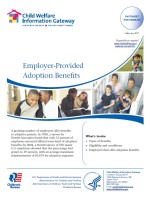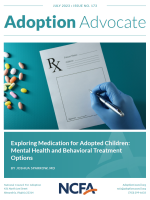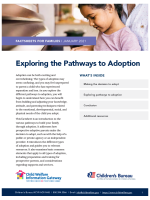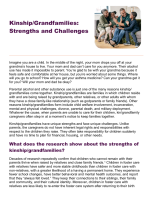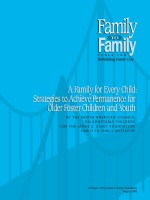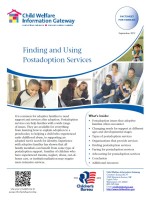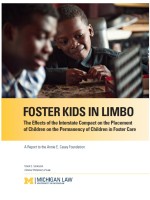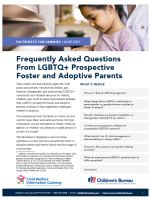A growing number of employers offer benefits to adoptive parents. In 1990, a survey by Hewitt Associates found that only 12 percent of employers surveyed offered some kind of adoption benefits; by 2004, a Hewitt survey of 936 major U.S. employers showed that the percentage had grown to 39 percent, with an average maximum reimbursement… [read more]
Employer-Provided Adoption Benefits
Exploring Medication for Adopted Children: Mental Health and Behavioral Treatment Options
Exploring Medication for Adopted Children: Mental Health and Behavioral Treatment Options Published by the Adoption Advocate, July 2023, Issue Number 173 The adoption community has made great progress in understanding the impact of trauma on children’s mental health and emotional well-being. As more adoptive parents seek healing for their children through mental health services, they… [read more]
Exploring the Pathways to Adoption
Adoption can be both exciting and overwhelming. The types of adoption may seem confusing, and you may feel unprepared to parent a child who has experienced separation and loss. As you explore the different pathways to adoption, you will begin to understand how you can benefit from building and adjusting your knowledge, attitude, and parenting… [read more]
Fact Sheet
Families Considering Foster Care and Adoption
Family to Family Tools for Rebuilding the Foster Care
Older foster children and youth have a pressing need for permanency. Almost half of the 538,801 children in out-of-home care at the end of the federal 2000 reporting period were ages 10 to17 (Gibbs et al., 2004). As one youth explained, “Our time is almost up. We want a home, and people we can call… [read more]
Finding and Using Postadoption Services
It is common for adoptive families to need support and services after adoption. Postadoption services can help families with a wide range of issues. They are available for everything from learning how to explain adoption to a preschooler, to helping a child who experienced early childhood abuse, to supporting an adopted teen’s search for identity…. [read more]
Foster Kids in Limbo
EACH YEAR, child welfare agencies make over 40,000 requests for home studies to determine whether children in foster care can be placed with parents, relatives and others living in another state. Each of these requests is governed by the Interstate Compact on the Placement of Children (“ICPC”), a uniform law adopted by every state to… [read more]
Frequently Asked Questions From Lesbian, Gay, Bisexual, Transgender, and Questioning (LGBTQ) Prospective Foster and Adoptive Parents
From Rights to Reality: A blueprint for parent advocacy and family-centered child welfare reform
From Rights to Reality: A blueprint for parent advocacy and family-centered child welfare reform September 01, 2015 by Rise From Rights to Reality is designed to unite parents and parent advocacy around a common set of goals. It identifies 15 rights for parents affected by the child welfare system. Most parents do not yet have… [read more]

